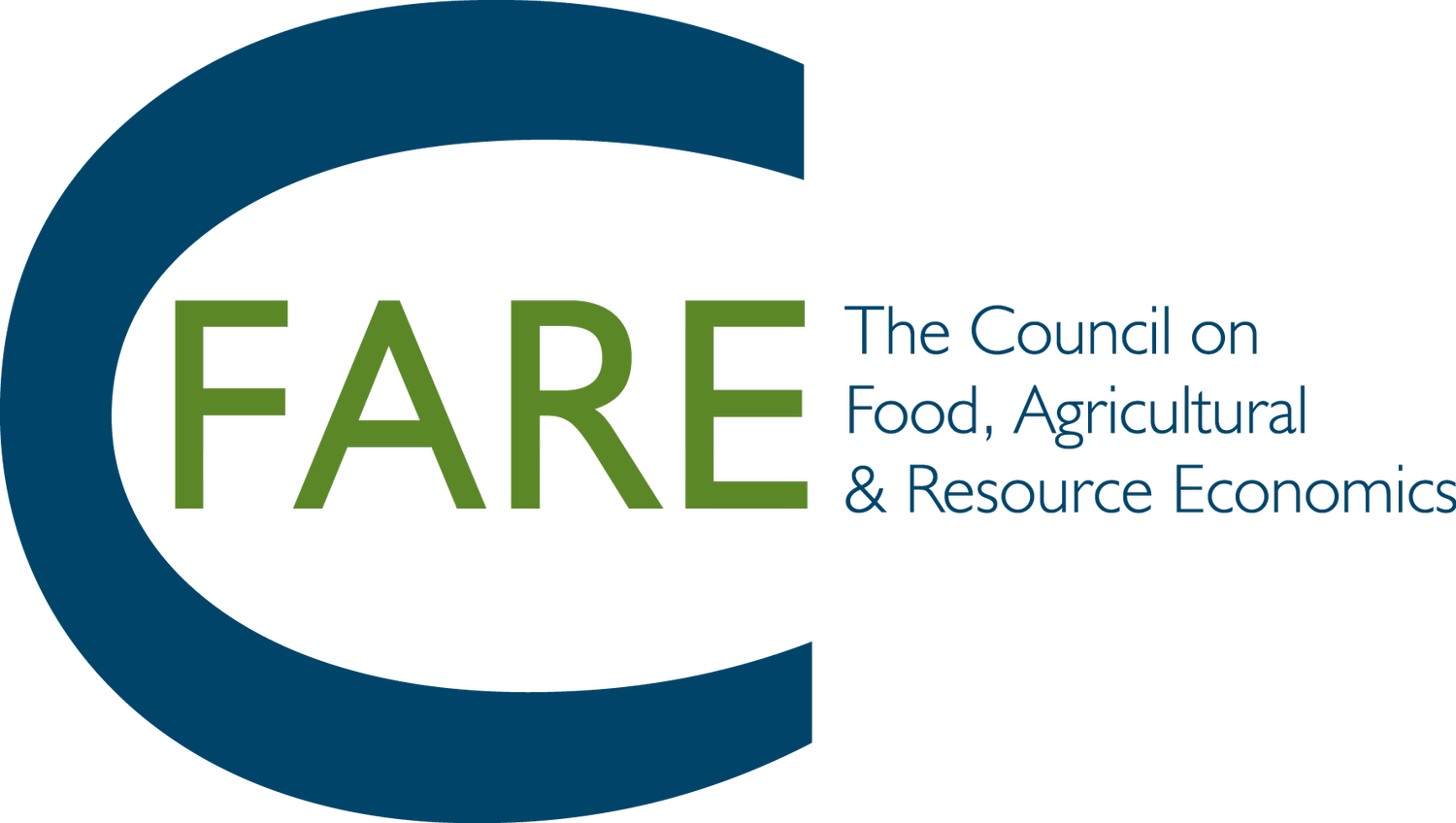Alternative Fuels and Policies to Lower their Carbon Intensity
We delve into the role of policies to increase the climate benefits of biofuels and Sustainable Aviation Fuels and contribute to rural communities’ economic viability. This webinar discusses the opportunities for increasing the climate benefits of these fuels and the effectiveness of using carbon intensity score-based policies to induce the adoption of climate-smart practices -- practices that increase biological carbon sequestration — by farmers producing feedstocks for these fuels. In addition, the panelists discuss the opportunities and challenges for such policies. The webinar also covers the current policy landscape supporting biofuels and sustainable aviation fuels.
Jeffrey O’Hara - Climate-Smart Farming in Biofuel Programs
Jeffrey O’Hara from the U.S. Department of Agriculture discusses the crucial intersection of regulatory programs and climate-smart farming practices. Emphasizing the priority the USDA places on reducing greenhouse gas impacts from farms and ranches, O'Hara delves into the concept of carbon intensity in fuels. He highlights the various components contributing to the life cycle greenhouse gas emissions of crop-based biofuels, including direct emissions from feedstock production and transportation, as well as indirect emissions resulting from market-mediated effects.
O’Hara underscores the significance of promoting climate-smart farming practices in the U.S., aligning with the nation's commitment to the Paris Agreement and global methane reduction initiatives. Practices such as conservation tillage, cover crops, and enhanced efficiency fertilizers are discussed as means to reduce greenhouse gas emissions from agriculture. O’Hara also sheds light on the USDA's efforts, including the allocation of funds and the establishment of programs like Partnerships for Climate Smart Commodities, aimed at creating markets for climate-smart commodities. The presentation concludes with insights into the limitations of existing biofuel policies, particularly the Renewable Fuel Standard, and the need for standardized protocols and quantification methodologies to incentivize climate-smart farming practices in the biofuel sector.
Madhu Khanna – Alternative Fuels and Policies to Lower their Carbon Intensity
Madhu Khanna from the University of Illinois at Urbana-Champaign explores the pivotal role agriculture can play in mitigating greenhouse gas emissions by providing biofuels and sustainable aviation fuels, displacing fossil fuels and enhancing carbon storage in soils. She highlights the current scenario where agriculture, particularly row crop agriculture, is a net source of greenhouse gas emissions, contributing about 5 percent to the total emissions in the U.S. and Europe. However, Khanna emphasizes the substantial potential for climate-smart practices to reverse this trend, showcasing a recent study that outlines various strategies to reduce carbon intensity, including optimizing fertilizer use, adopting electrification on farms, redesigning agricultural practices, and improving crop genetics.
Khanna delves into the significance of climate-smart agricultural practices, such as increasing soil carbon storage and reducing greenhouse gas emissions. She underscores the importance of cover crops, reduced tillage, and improved management of fallow land and grazing. Madhu presents data illustrating the positive impact of cover crops on soil carbon sequestration and how biofuels can contribute to lowering carbon intensity. Despite the potential benefits, she acknowledges the challenges in the adoption rates of climate-smart practices, particularly the barriers related to costs, transaction complexities, and insufficient carbon prices. The presentation concludes with a call to develop markets and policies that integrate carbon intensity as a key attribute, emphasizing the need for national-level policies to incentivize climate-smart practices in the agriculture and biofuel sectors.
Kathy Bergren – Alternative Fuels and Policy to Lower their Carbon Intensity
Kathy Bergren from Gevo, Inc. discusses the company's efforts in harnessing agriculture for renewable fuels and chemicals, particularly focusing on sustainable aviation fuel (SAF). Gevo is in the process of financing a new SAF production facility in South Dakota, aiming to decarbonize the production process from feedstock to the final fuel. Bergren highlights Gevo's tools, such as Verity Carbon Solutions, which enables farmers to track the carbon intensity of their feedstock on a field level basis. The company's planned investment in sustainable aviation fuel includes using an ethanol-to-jet production process, with a targeted startup of a 65 million-gallon facility in 2026. Bergren emphasizes the need for policies that consider carbon intensity and mentions Gevo's advocacy for the Department of Energy's Argonne National Lab GREET model as a measuring stick for carbon reductions in federal tax incentives.
She delves into the market for SAF, emphasizing the significant demand from airlines looking to reduce their carbon footprint, with Gevo having signed offtake agreements totaling around 400 million gallons per year. Bergren discusses the importance of various feedstocks for SAF, including corn, and how sustainable practices and higher yields can contribute to meeting the demand without expanding land in production. She also addresses existing policies like the Renewable Fuel Standard and state low carbon fuel standards, highlighting the need for technology-neutral and feedstock-neutral approaches. Bergren concludes by illustrating how Gevo's tools, partnerships with USDA, and focus on sustainability throughout the supply chain contribute to a circular economy and incentivize farmers for their sustainable practices in the biofuel market.
This program is supported in part by the Agricultural and Applied Economics Association and the US Department of Agriculture’s Economic Research Service, and the National Agricultural Statistics Service.
Those who register but cannot attend our webinar can always view a recording of it later at the council’s YouTube channel.



